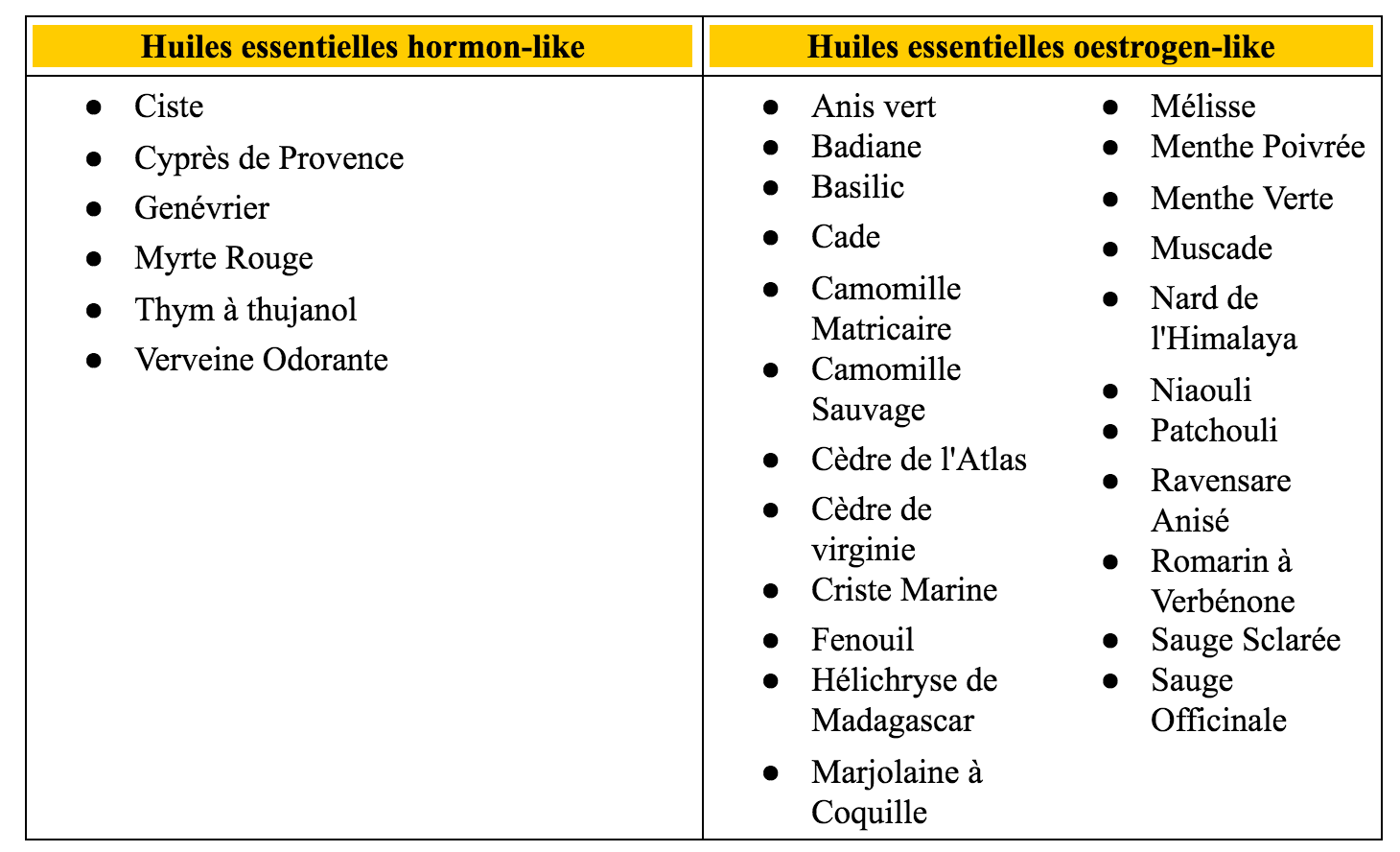Essential oils are commonly used to accompany and limit the side effects of chemotherapy. However, some essential oils are not recommended, and may even be totally contraindicated. Find out which ones you shouldn't use if you have to undergo chemotherapy.
Aromatherapy is a branch of phytotherapy
It uses the aromatic compounds of plants in the form of essential oils. A true concentrate of active ingredients, they have a high potential for action on all kinds of problems, whether physical or emotional. They should only be used under the advice of a trained professional: doctor, pharmacist, aromatherapist, naturopath...
As part of conventional cancer therapy, they can help relieve certain discomforts associated with the side effects of chemotherapy and/or radiotherapy. Nausea, fatigue, immune weakness, loss of appetite, burns, mouth ulcers, mycoses and other aches and pains can all be relieved by the use of certain very specific oils, according to a precise protocol drawn up by a professional in the field of natural medicine.
Essential oils and hormone-dependent cancers
However, not all essential oils are good for you, especially in cases of hormone-dependent cancer. The ARC Foundation defines this type of cancer as follows:
"A cancer is hormone-dependent or hormone-sensitive when hormones play a role in the proliferation of cancer cells [...] In the majority of cases, sex hormones have a carcinogenic action if the tumor cells have an abnormal quantity of specific receptors on their surface. These cells are then said to have developed hypersensitivity to the hormones. When the hormone attaches itself to these cells, it stimulates their multiplication, thus promoting tumor development. "
In fact, cancers affecting the ovaries, endometrium, breasts, uterus, prostate, thyroid or neuroendocrine tumors are sensitive to the presence of abnormally high levels of hormones.
For some cancers, such as ovarian, endometrial and breast cancer, this sensitivity is linked to the presence of sex hormones , including estrogen. As mentioned in the article on xenoestrogens and endocrine disruptorsThere are sources of estrogen that are foreign to the body, either of chemical or natural origin.
These are derived from so-called "hormone-like " or "estrogen-like" plants, as the phytoestrogens present in their aromatic compounds have a similar action to estrogens already present in the body. Together, their actions further disrupt the proper functioning of the endocrine system, while promoting the proliferation of cancer cells.
List of essential oils to avoid when treating hormone-dependent cancers

As a precaution, these essential oils are not recommended even for non-hormone-dependent cancers.
Essential oils and blood thinning
Some anti-cancer treatments can thin the blood. In this case, to avoid drug interactions, essential oils containing methyl salicylate, such as Wintergreen essential oil, as well as citrus, Angelica and Khella essential oils, should be expressly avoided.
Chemotherapies are extremely powerful therapeutic procedures that wash away everything in their path. Essential oils must be used under supervision and not blindly, as they too have a powerful effect.
Accidents happen quickly with essential oils: poisoning is possible if you don't respect the rules governing their use.



